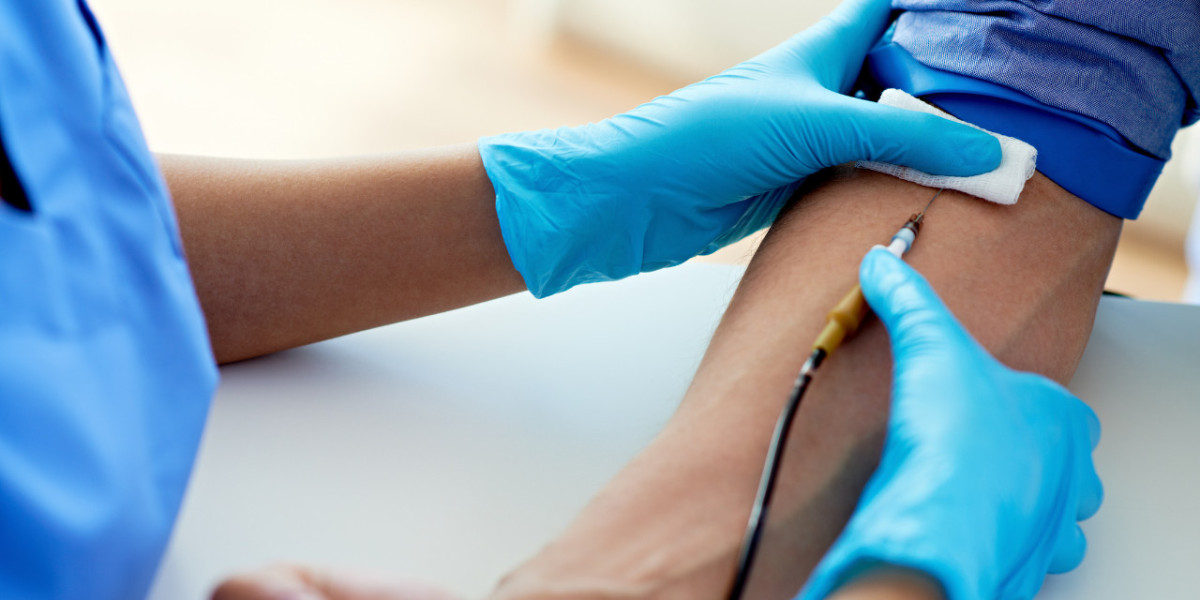Blood Test in Bangalore: Your Complete Guide to Health Check-ups
Maintaining your health starting with a blood test in Bangalore is a vital part. Bangalore, a bustling city with state-of-the-art medical facilities, offers a variety of diagnostic services tailored to your needs. Whether you're opting for routine health check-ups or specific tests, knowing where to go and what to expect is crucial.
Why Are Blood Tests Important?
Blood tests are an essential diagnostic tool to:
Detect underlying health conditions early.
Monitor chronic diseases like diabetes or hypertension.
Assess overall wellness and organ functionality.
Guide medical treatments and interventions.
What Makes Bangalore a Hub for Diagnostic Excellence?
Bangalore boasts:
Advanced laboratories: Equipped with cutting-edge technology for precise results.
Experienced professionals: Trained technicians and pathologists.
Home sample collection services: Convenience at your doorstep.
Affordable pricing: Quality services at competitive rates.
Types of Blood Tests Available in Bangalore
Understanding the various blood tests helps you choose the right one for your needs. Here are the most common types:
1. Complete Blood Count (CBC)
This basic test evaluates:
Red blood cells, white blood cells, and platelets.
Hemoglobin levels.
Signs of anemia or infections.
2. Blood Sugar Test
Useful for diagnosing and managing diabetes. Types include:
Fasting Blood Sugar (FBS).
Postprandial Blood Sugar (PPBS).
HbA1c (long-term glucose control).
3. Lipid Profile
Measures cholesterol and triglyceride levels to assess heart health.
4. Thyroid Function Test
Detects imbalances in thyroid hormones such as T3, T4, and TSH.
5. Liver Function Test (LFT)
Checks liver enzymes, proteins, and bilirubin levels to evaluate liver health.
6. Kidney Function Test (KFT)
Analyzes creatinine, urea, and electrolytes to determine kidney performance.
7. Vitamin and Mineral Tests
Determines deficiencies in essential vitamins like D, B12, and minerals such as iron.
8. Infection and Disease-Specific Tests
Includes tests for:
Dengue, malaria, and typhoid.
HIV, hepatitis, and other viral infections.
Top Benefits of Getting a Blood Test in Bangalore
1. Early Diagnosis
Timely tests can detect conditions before symptoms appear, enabling early intervention.
2. Convenient Services
Many labs offer online booking, same-day reporting, and home sample collection.
3. Comprehensive Health Packages
Choose from tailored packages like:
Full-body check-up.
Women’s health panel.
Senior citizen health check-up.
4. Cost-Effective Options
Affordable pricing ensures accessibility for all.
How to Prepare for a Blood Test
Preparation enhances accuracy. Follow these steps:
1. Fasting Requirements
Some tests require fasting for 8-12 hours, like:
Blood sugar.
Lipid profile.
2. Medication Disclosure
Inform your doctor about ongoing medications, as they might affect results.
3. Stay Hydrated
Drink plenty of water to make veins easier to locate.
4. Wear Comfortable Clothing
Opt for attire with easy access to your arms.
Choosing the Right Diagnostic Lab in Bangalore
1. Accreditation
Look for NABL-accredited labs for reliability and quality assurance.
2. Proximity
Choose labs near your location or opt for home collection services.
3. Reputation
Read reviews and testimonials for insights into customer satisfaction.
4. Turnaround Time
Quick results are crucial, especially for urgent tests.
For seamless and trusted services, consider booking your blood test in Bangalore today.
Common Questions About Blood Tests
1. Is Fasting Always Necessary?
Not all tests require fasting. Confirm with your doctor or the lab before your appointment.
2. Are Blood Tests Painful?
Blood tests involve minimal discomfort, similar to a quick pinch.
3. How Often Should You Get Tested?
Frequency depends on:
Age.
Medical history.
Specific health concerns.
4. Can I Eat After My Test?
Yes, resume eating post-test unless advised otherwise by your doctor.
Steps to Interpret Your Blood Test Results
1. Understand the Reference Range
Compare your results with the lab’s reference range.
2. Seek Expert Advice
Consult a doctor to decode complex findings.
3. Monitor Changes Over Time
Keep track of your results to observe trends and improvements.
Conclusion
Getting a blood test in Bangalore is a straightforward and beneficial process that prioritizes your health. With modern facilities, expert professionals, and home collection services, staying on top of your health has never been easier. Remember, regular blood tests are key to a proactive approach to wellness.
Book your test today and take the first step towards a healthier life.
10 Frequently Asked Questions About Blood Tests
1. What Are the Risks of a Blood Test?
Blood tests are generally safe. Mild bruising or soreness at the puncture site is the most common side effect.
2. How Long Does It Take to Get Results?
Basic tests like CBC or sugar tests can take a few hours, while more complex tests might require a day or two.
3. Can I Take a Blood Test During Pregnancy?
Yes, many blood tests are specifically designed to monitor the health of both mother and baby during pregnancy.
4. What Should I Do If My Results Are Abnormal?
Consult your doctor immediately to understand the implications and discuss the next steps.
5. How Do Home Sample Collection Services Work?
A trained professional visits your home to collect the sample, which is then analyzed at a lab. Results are shared digitally.
6. Are Blood Tests Covered by Insurance?
Many health insurance plans cover diagnostic tests. Verify with your provider for specifics.
7. Can Dehydration Affect Blood Test Results?
Yes, dehydration can impact certain test readings, such as kidney function markers.
8. How Do I Know Which Test to Choose?
Your doctor will recommend tests based on your symptoms and health history.
9. Are There Any Alternatives to Blood Tests?
While blood tests are often irreplaceable, other diagnostic tools like imaging or urine tests may complement them.
10. Can I Donate Blood After a Blood Test?
Yes, but it’s best to wait a few days to allow your body to recover from the test.








